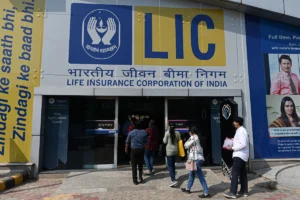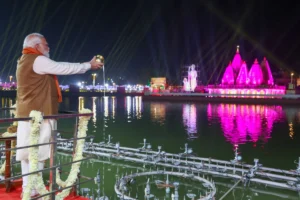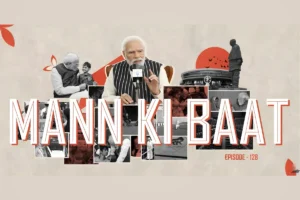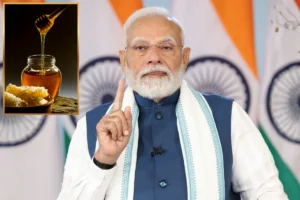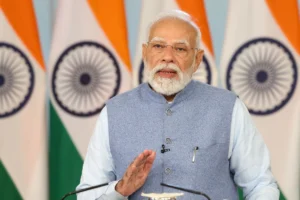
In the recent Rajya Sabha elections, the actions of Congress and Samajwadi Party MLAs, who defied party directives and voted in favor of Bharatiya Janata Party (BJP) candidates based on their conscience, have sparked considerable controversy. Supporters and spokespersons from both parties are now rallying for democracy, while analysts and journalists are raising concerns about the integrity of the democratic process. Allegations abound that the BJP, through the misuse of government agencies and financial influence, has sowed discord within the legislative factions of Congress-led opposition parties, to weaken the democratic system.
Congress and its allies have often touted their commitment to democracy, especially when targeting BJP MLAs and National Democratic Alliance (NDA) allies. However, recent events reveal a level of inconsistency in their approach. For instance, just days ago, a spokesperson for Congress ally Rashtriya Janata Dal (RJD) boasted about an operation to break the legislative parties of BJP and Janata Dal (United) in Bihar. Yet, when the Nitish Kumar government faced a trust vote in the Bihar Assembly, RJD MLAs crossed over to support Nitish. Similarly, while Congress laments the defeat of its candidate Abhishek Manu Singhvi in Himachal Pradesh, it proudly highlights instances of cross-voting with BJP MLAs in Karnataka. However, such political maneuvering is not without its controversies, as evidenced by past allegations against Singhvi regarding his conduct towards a female judge.
Meanwhile, in Uttar Pradesh, the Samajwadi Party is vocal in criticizing MLAs who switch sides, yet its own history is not immune to such actions. Despite preaching moral lessons, the party had no qualms when one of its MLAs, Om Prakash Rajbhar, crossed over to vote in its favor. Moreover, the party’s massive defection of Bahujan Samaj Party (BSP) MLAs in the 1990s and 2003 raises questions about its commitment to democratic principles.
Also Read: Bengaluru Blast: Police Narrow Down Suspect’s Call at Rameshwaram Cafe, Scanning 500 Numbers
The history of defection in Indian politics is long-standing, reflecting the complex dynamics of power and ambition. Initially, the framers of the Constitution did not include provisions to prevent defection, as the Westminster system, which influenced India’s legislative framework, emphasized the freedom of legislators to act according to their conscience. However, from 1951 to 1967, a significant number of MLAs from various parties switched sides to join Congress, with the process often viewed through a democratic lens.
The turning point came with the success of non-Congress governments in 1967, leading to a surge in defections from Congress to opposition parties. Concerned by the trend, the Congress government formed a committee under Yashwant Rao Chavan to address the issue of defection. The subsequent surge in defections prompted Congress to reconsider its stance, and discussions around an anti-defection law began in the 1970s.
Despite these discussions, defections continued, with political leaders exploiting loopholes to their advantage. The downfall of Morarji Desai’s government in 1979, orchestrated by Congress through a split in the Janata Party, highlighted the need for legislative safeguards against defection. The passage of the anti-defection law in 1985, requiring one-third of members to form a separate legislative or parliamentary party, was a significant step towards addressing the issue.
However, even with the anti-defection law in place, instances of defection persisted, often driven by political expediency. The actions of leaders like Rajiv Gandhi, who played a role in toppling governments despite the anti-defection law, underscored the challenges in enforcing legislative discipline.
Also Read: PM Modi to Participate in Pokhran War Game Spotlighting India’s Indigenous Defense Capabilities
Moreover, the history of defection in Indian politics is rife with examples of political leaders flouting established norms and standards. Despite the setting of thresholds for forming separate legislative parties, instances where these thresholds were disregarded or manipulated raise questions about the efficacy of legislative safeguards.
The recent controversy surrounding defections in Indian politics reflects a broader trend of opportunism and power play, where political expediency often trumps democratic principles. As Congress and its allies navigate the complexities of coalition politics, their actions are scrutinized against the backdrop of their historical record, raising questions about the sincerity of their commitment to democracy and constitutional integrity.
To read more such news, download Bharat Express news apps
















